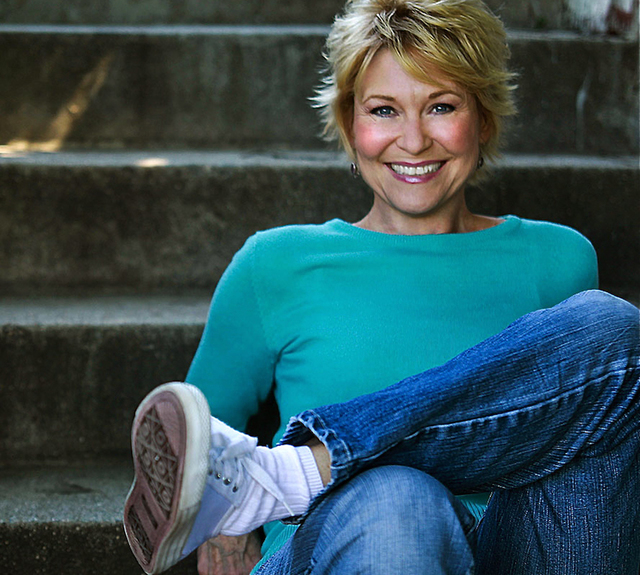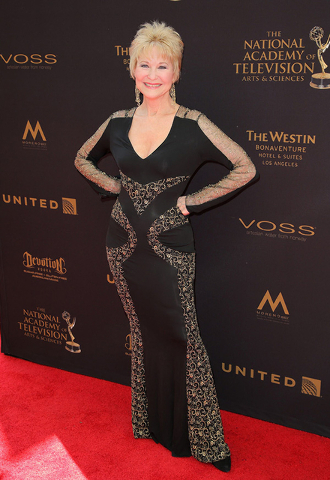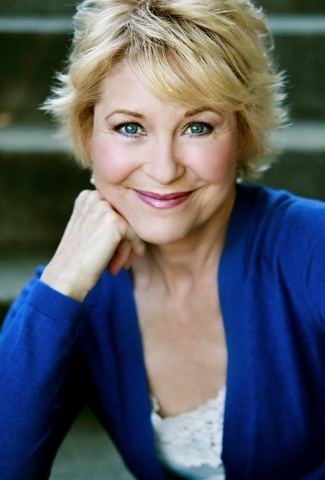Slot fanatic Dee Wallace isn’t concerned about gambling, focuses on children’s self-worth



Editor’s Note: People remember Dee Wallace as Mary in Steven Spielberg’s “E.T. the Extra-Terrestrial.” Today, she takes on the role of guest columnist while Robin Leach is away on his annual Italian family vacation in Tuscany. From Kansas City, Kansas, Dee has worked as an author, teacher, dancer and actress in film, television and stage for more than 40 years.
Her career began in New York where she studied with acting legend Uta Hagen before moving to Los Angeles. With more than 150 credits, Dee is a tour de force working with countless producers, directors and some of Hollywood’s biggest names, including Steven, Peter Jackson, Wes Craven, Joe Dante, Stephen King, Blake Edwards and Rob Zombie.
Her many film and TV credits include “E.T.,” “The Hills Have Eyes,” “The Howling,” “Cujo,” “Secret Admirer,” “The Frighteners,” “Grimm,” “The Whispers,” “Grey’s Anatomy,” “My Name Is Earl,” “The Office” and “Just Add Magic.” She recently completed three films: “False Memory Syndrome,” “Zombie Killers: Elephant’s Graveyard” and “Flowers in December.”
The actress has beaten back the effects of an alcoholic family and created a unique way for children to believe in their self-worth and strengths.
By Dee Wallace
I love Las Vegas! It’s one of my standing three-day vacation getaways. I have to admit that I’m a slot slut. It’s true. Turn me loose on a Willy Wonka penny machine, and rescue me 4 hours later. I never lose more than $20, and sometimes I win $600. I have fun for a long time for very little. I figure that everyone wins.
I don’t worry about becoming addicted to gambling. There is nothing in me that wants anything else to have control over me. My dad was an alcoholic, and my brain decided to go the opposite way. One of my family members has not been so fortunate with alcohol addiction.
The more I researched addiction, the more I became aware that often, usually, the brain has wired itself genetically to set certain people on an unchosen track with which they are consumed. I stumbled onto this education because I am a clairaudient channel. That means I hear messages.
If you want to look at it scientifically, I decipher information from energy. I have done thousands of webinars and private sessions with people. It became increasingly apparent to me that there was a common thread woven through all of mankind that was creating lives of quiet desperation. We simply didn’t love ourselves. Period.
My family member certainly didn’t love themself or they wouldn’t be drinking themself to death. And the more I pondered why I wasn’t an alcoholic and they were, I began studying brain science. I learned this alarming fact: How we see our self-worth in the world and how we perceive how we are valued in the world is completed and wired in our brain by the age of 4.
When I was 4, my dad was still working and loving. When my family member was 4, my dad was a drunken slob. Two different experiences, two different brain perspectives of self-worth. I knew that I had to create a vehicle to train children’s brains in their formative years, a toy that would help teach children’s brains to own their magnificence.
I created Buppalapaloo (Buppalapaloo.com). Buppa’s sole role in this life is to help children claim in strong first-person statements how smart, loved and awesome they are. It’s an interactive toy with 14 empowering statements the child repeats back to Buppa. The child (or parent) can put in their own important message in the other paw. It’s a fun, simple and playful way to create a brain that acknowledges, “Yes! I am awesome in this world!”
My hope is that this simple idea will balance whatever trauma a child might experience in this life so that when challenged as an adult in any kind of negative behavior, the brain will softly whisper, “Wait a minute. I’m special.”
Be sure to check back Friday for our next guest columns from the wacky Piff the Magic Dragon, another “America’s Got Talent” alumnus, and Larry Ruvo, who is the founder and creator of Keep Memory Alive, the funding arm of the Cleveland Clinic Lou Ruvo Center for Brain Health.












